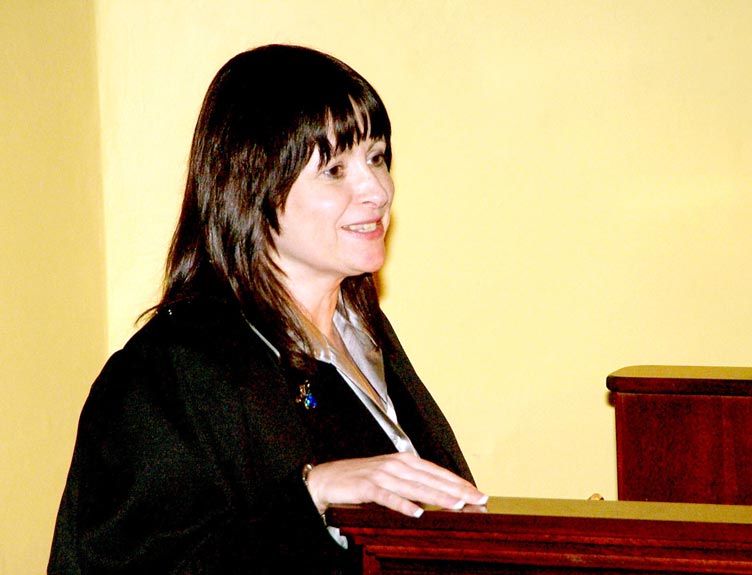Professor Kim Barrett addresses RCSI on the cellular and molecular control mechanisms

The fourth annual Charitable Trust Lecture in Molecular Medicine at RCSI was delivered last night, Wednesday, 11 April by Professor Kim E. Barrett, Professor of Medicine and Dean of Graduate Studies, University of California, San Diego.
Entitled, 'The intestinal epithelium as inner frontier: liabilities and benefits of our intimate life with a microbial ecosystem', Professor Barrett spoke about her research into the cells that line the intestine, known as epithelial cells.
The intestine has a surface area equivalent to that of a doubles tennis court and it is designed to take up nutrients from the diet. These factors make the gastrointestinal tract vulnerable to invasion by harmful microorganisms, such as bacteria and viruses. Many of these microorganisms, such as Salmonella, cause diarrheal symptoms.
Epithelial cells act as a barrier between the body and the outside world and must keep out harmful disease-causing organisms and toxins, while at the same time allowing the uptake of beneficial substances, such as nutrients.
Her current research studies how these cells can transport salt and water into and out of the intestine and the ways in which that barrier function is controlled. She is particularly interested in the interaction of epithelial cells with harmful bacteria and the beneficial bacteria that may protect the intestine from harm. According to Professor Barrett, transport and barrier functions of the intestine don’t work right in certain disease states. By understanding the basic mechanisms that control epithelial properties, it may be possible to find something that would be useful to develop new treatments for these diseases.
Professor Brian Harvey, RCSI Director of Research, said: “This lecture has always been delivered by world renowned researchers and this year is no exception. We are delighted to have had Prof. Barrett here at the College. Since its opening in 2002, the Charitable Infirmary Trust Molecular Medicine Laboratories at Beaumont Hospital have encouraged and funded translational research projects between clinicians and scientists. Today's lecture by Prof. Barrett illustrated how first-class basic research underpins translation into clinical applications.”



